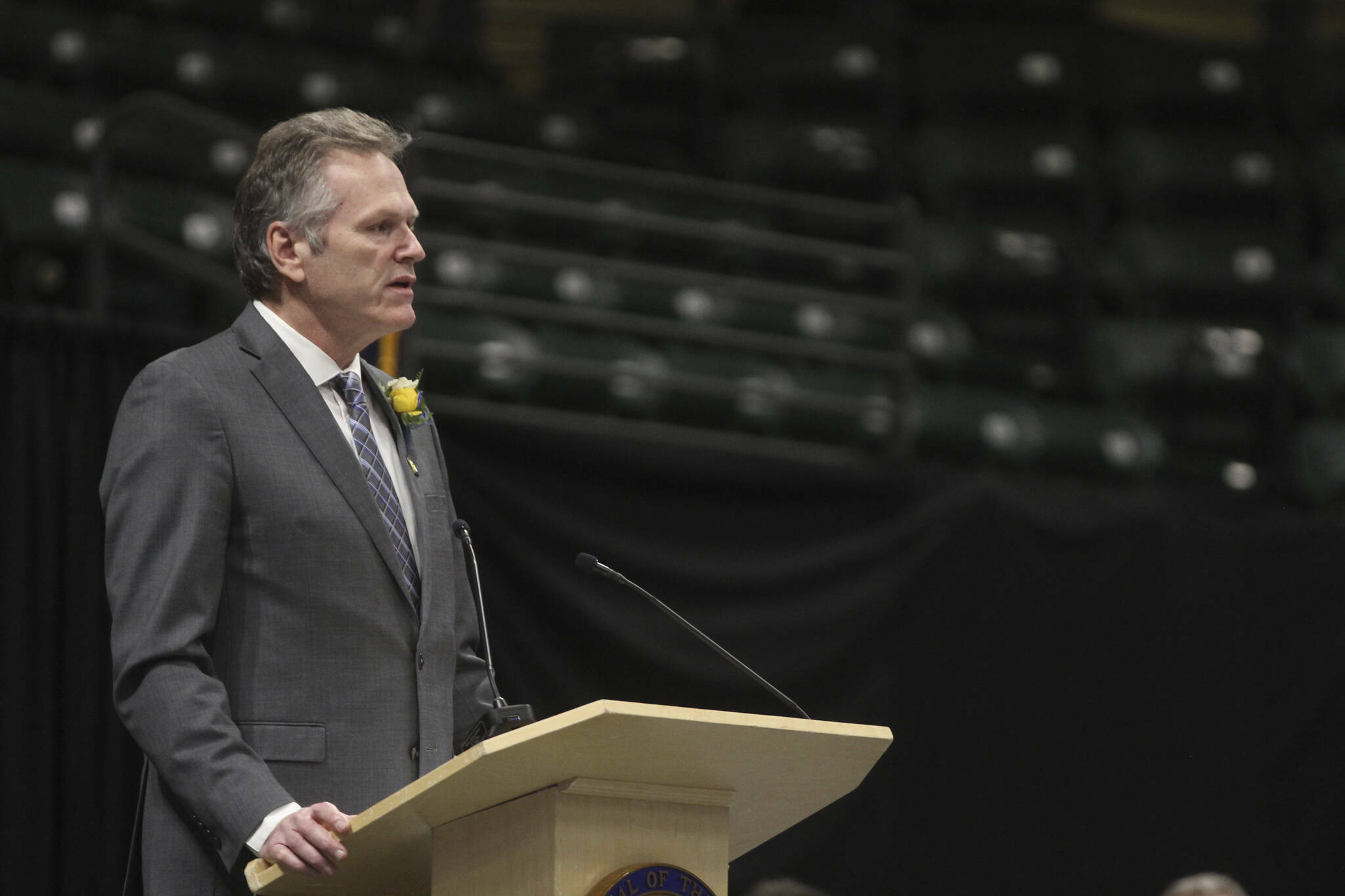According to two longtime researchers at the Alaska Department of Labor, articles produced for Alaska Economic Trends had never been removed from the publication before. But there’s a first time for everything. And in what appears to be a blatant political decision, Gov. Mike Dunleavy’s administration ordered a five-page analysis about teachers’ salaries be stricken from the October edition.
For a governor who entered office promising to “restore public trust in government and elected officials,” it seems he’s guiding it in the opposite direction.
Now I’m not naïve enough to have been fooled by his altruistic rhetoric. The idea of trust has been used and abused by far too many politicians.
With Dunleavy though, it began on day one. Tuckerman Babcock, his incoming chief of staff, issued a memo to all at-will state employees that a Superior Court judge ruled served as a demand of loyalty which violated the Constitution’s free speech clause.
By way of a letter to the editor published in the Anchorage Daily News, the director of psychiatry at the Alaska Psychiatric Institute publicly objected to the memo. Dr. Anthony Blanford stated Dunleavy’s agenda of budget cuts and hiring freezes wasn’t “what’s needed at API at this time.” He refused to submit a letter of resignation as the memo directed and was fired almost immediately after Dunleavy was sworn into office.
Even though Dunleavy is ultimately responsible for the actions taken by those working directly under him, he tried to avoid the controversy by letting Babcock defend the memo alone. But Blanford filed a lawsuit naming Babcock and Dunleavy as defendants. And the judge ruled both were personally liable for violating his First Amendment rights and unjustly firing him.
I felt a sense of déjà vu last week while reading the ADN opinion by Dan Robinson, the research chief for the Alaska Department of Labor and Workforce Development. Like Blanford’s letter, Robinson’s served as a credible accusation that Dunleavy’s administration is politicizing work that’s historically been professionally objective and politically neutral.
Internal communications show the governor’s office was involved in the decision to remove the article in question. But it was Department of Labor Commissioner Cathy Muñoz who provided an explanation. She claimed the Economic Trends article about teachers’ salaries “deviated from the publication’s standard of neutrality” when it should have been “unbiased and fair.”
Although the article wasn’t published, the Alaska Beacon obtained a copy of it, verified its content and provided a link to it on its website. There’s not a hint of political bias in it.
The article begins by comparing the average salary for Alaska’s teachers with other states. The narrative explains and charts show that at 170% of the national average, they were the highest in the nation in 1980. By 2000, they fell to around 110%, where they remain today, while nine other states are paying teachers more.
Those are simple facts based on data that’s been regularly collected and analyzed for years.
The article also provides information on why teachers leave Alaska, how recruiting and retaining them is a national problem, and the difference between teachers’ retirements systems here and elsewhere.
None of that is criticism of Dunleavy, his administration or his party. Nor does the article get into partisan issues such as support of teachers’ unions or state funding for private schools.
I suspect what gave them heartburn is how the article reads just months after Dunleavy vetoed $87 million intended as a one-time education funding increase. He never explained why he did that. An educated guess is that it conflicted with his primary agenda of budget cuts and resource development.
For instance, his administration is committed to permitting oversized trucks to transport ore from a gold mine near Tok across 240 miles of state highway. Meanwhile, he seems more than comfortable ignoring residents along the route who strongly oppose the plan.
That’s the same way he treated Alaskans who complained about his deep budget cuts to the Alaska Marine Highway System. And the people currently affected by the yearlong backlog in his administration’s processing of food stamp benefits.
We’ve known all along that retaining public school teachers and alleviating parents’ concerns about overcrowded classrooms weren’t part of Dunleavy’s agenda. Censoring the article about their salaries doesn’t change that. It just adds a variation to all the other evidence that he’s less trustworthy than the typical untrustworthy politician.
• Rich Moniak is a Juneau resident and retired civil engineer with more than 25 years of experience working in the public sector. Columns, My Turns and Letters to the Editor represent the view of the author, not the view of the Juneau Empire. Have something to say? Here’s how to submit a My Turn or letter.

